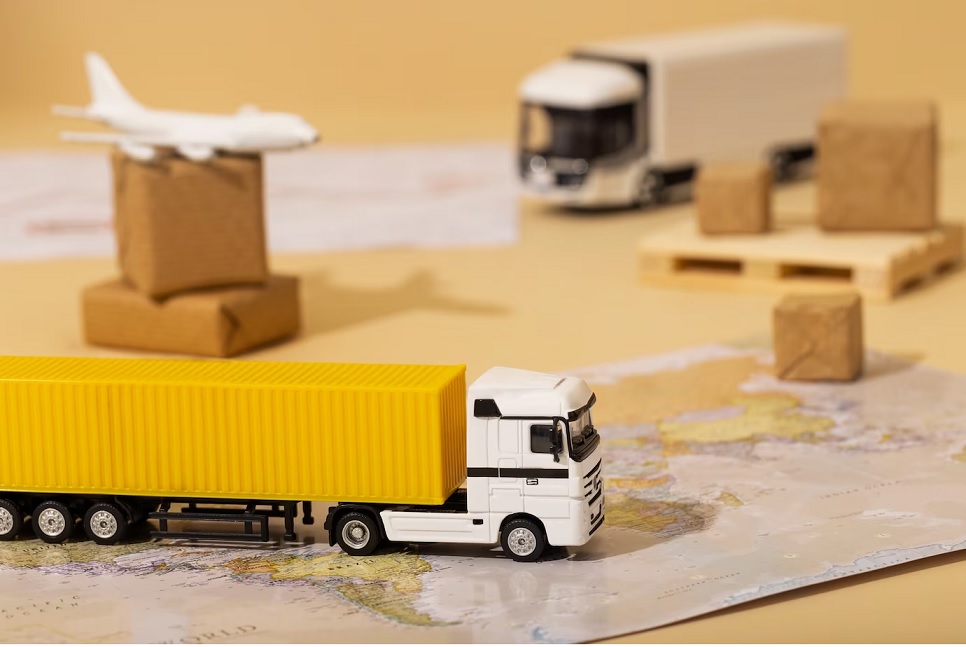Indonesia’s handicraft industry—known for its traditional textiles, carvings, woven goods, and cultural artistry—has strong potential in global markets. With growing demand for unique, handmade products, micro, small, and medium-sized enterprises (MSMEs) have a timely opportunity to join global value chains and boost national export performance.
But product quality alone isn’t enough. To succeed internationally, businesses must also meet legal and regulatory requirements—particularly those relating to customs and excise. Understanding how to navigate these rules is key to running a legal, efficient, and sustainable export operation.
Legal Requirements for Exporting Handicrafts from Indonesia
To export Indonesian handicrafts legally, businesses must fulfill a number of regulatory and administrative requirements, as stipulated by Indonesian law :
1. Business Identification Number (Nomor Induk Berusaha – NIB)
Under Ministry of Trade Regulation No. 23 of 2023 (Permendag 23/2023), all exporters must have a Business Identification Number (NIB), issued via the Online Single Submission (OSS) system. The NIB acts as a broad license covering both operational and commercial activities.
2. Export Permits
For certain goods, exporters are also required to hold a specific Export Business Permit. This can be obtained through the Indonesia National Single Window (SINSW) system at http://inatrade.kemendag.go.id.
Other related licenses may include:
a. A trading business license (Surat Izin Usaha Perdagangan – SIUP) from the local trade office;
b. An industrial business license from the local industry office;
c. Investment permits issued by the Investment Coordinating Board (BKPM), for both domestic and foreign investors.
3. Tax Identification Number (NPWP)
As required by Article 4(4) of Permendag 23/2023:
a. Individuals must have a national identity number or NPWP,
b. State-owned enterprises and foundations require an NPWP;
c. Cooperatives and business entities must have both an NPWP and NIB;
d. Businesses without a NIB must hold an NPWP..
4. Customs Registration
Exporters must register with the Directorate General of Customs and Excise (DGCE).
Once registered, the customs process generally involves:
- Submitting an Export Declaration (Pemberitahuan Ekspor Barang- PEB) via the Indonesia National Single Window (SINSW) portal, along with documents like invoices, packing lists, and shipping documents;
- Physical inspection, if required;.
- Receiving an Export Service Note (Nota Pelayanan Ekspor – NPE) from Customs, confirming the shipment is cleared for export.
Customs’ Role in Supporting MSME Exporters
The Directorate General of Customs and Excise (DGCE)’s responsibilities extend beyond border control. Under Article 2A of Law No. 17 of 2006 (amending Law No. 10 of 1995), the agency is also tasked with encouraging national exports—especially among MSMEs.
Export duties are imposed on certain strategic goods (e.g., leather, wood, palm oil, minerals) to:
- Secure domestic supply;
- Conserve natural resources;
- Stabilize international prices;
- Protect domestic markets.
Typically, export duties are applied to strategic commodities like leather, processed wood, cocoa beans, palm oil, and mineral products.
To foster a more export-friendly ecosystem for small and medium manufacturers, the Ministry of Finance introduced the KITE IKM (Import Facility for Export Purposes – Small and Medium Industries), governed by Regulation No. 110/PMK.04/2019. This policy exempts eligible MSMEs from import duties and VAT for raw materials, components, or machinery used to produce goods for export. Article 2(1) of the regulation stipulates eligibility for:
- Small or medium-sized enterprises;
- Business groups formed by MSMEs;
- MSME clusters operating under a designated center; or
- Cooperatives;
As of September 2023, 123 businesses across Indonesia had accessed KITE IKM facilities, and the number is expected to grow.
DGCE has also launched initiatives such as the Export Clinic program to guide and assist potential MSME exporters. By the end of 2023, Customs had supported 3,988 MSMEs, 836 of which had successfully entered international markets.
One notable example includes a small enterprise in Tasikmalaya that exported 10,000 pairs of woven mendong sandals to Thailand in early 2025, earning USD 8,000 and spotlighting the global appeal of Indonesia’s eco-friendly, handmade products.
To further streamline exports, DGCE has developed the CEISA Export System, accessible via https://portal.beacukai.go.id, which allows online submission of export documentation—simplifying the administrative process and enhancing transparency.
Indonesia’s handicraft sector holds unique value in global markets. But to capitalize on this potential, MSMEs must go beyond creativity—they must also comply with trade laws, customs regulations, and documentation standards. By understanding export procedures, utilizing customs facilities, and adopting digital systems, MSMEs can grow their international footprint while ensuring their operations are legally sound and sustainable.***
Regulations:
- Peraturan Menteri Perdagangan Nomor 23 Tahun 2023 tentang Kebijakan dan Pengaturan Ekspor (“Permendag 23/2023”)
- Undang-Undang Nomor 17 Tahun 2006 tentang Perubahan Atas Undang-Undang Nomor 10 Tahun 1995 tentang Kepabeanan (“UU Kepabeanan”).
- PMK Nomor 110/PMK.04/2019 tentang Perubahan Atas Peraturan Menteri Keuangan Nomor 177/PMK.04/2016 tentang Pembebasan Bea Masuk dan Tidak Dipungut Pajak Pertambahan Nilai atau Pajak Pertambahan Nilai dan Pajak Penjualan Atas Barang Mewah Atas Impor Barang dan/atau Bahan, dan/atau Mesin yang dilakukan oleh Industri Kecil dan Menengah dengan Tujuan Ekspor (“PMK 110/2019”).
References:
- Inatrade. Kementerian Perdagangan. (Diakses pada 7 Mei 2025 pukul 08.15 WIB).
- Bea Cukai Berperan, Ekspor UMKM Catat Peningkatan Berkelanjutan. Bea Cukai. (Diakses pada 7 Mei 2025 pukul 08.22 WIB).
- Ekspor 10.000 Pasang Sandal Mendorong Tasikmalaya ke Thailand. Bea Cukai. (Diakses pada 7 Mei 2025 pukul 08.31 WIB).
- CEISA Export System. Bea Cukai. (Diakses pada 7 Mei 2025 pukul 09.12 WIB).
